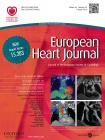An international team of researchers coordinated by Professor Gabriel Steg and Dr. Boris Hansel (Departments of ‘Cardiology’ and of ‘Endocrinology, Diabetes and Nutrition’ from the Bichat Claude Bernard Hospital: AP-HP and the University Paris-Diderot) has demonstrated that in people who have heart or arterial diseases, obesity does not appear to increase cardiovascular risk, whereas leanness is a very poor prognosis. These results were published in the European Heart Journal August 4, 2015.
The study was conducted worldwide with over 54,000 patients at high cardiovascular risk from the international registry REACH2 divided according to their body mass assessed by body mass index (BMI). The incidence of death and of cardiovascular events were analyzed according to BMI.
The study found that in patients with heart or arterial diseases, overweight and obesity are associated with an increased risk of heart attack or stroke. Instead, excess weight appears as protector and leanness as dangerous. The risk of death compared to normal weight is doubled in lean people while it is reduced by 22% among overweight people, 28% of those with moderate obesity and 37% in those with severe obesity. This is the paradox of obesity.
In REACH, obese patients are more often than others, under prophylactic treatments for cardiovascular diseases. So this could have explained a decreased risk of cardiovascular events in those people who are better protected thanks to drugs. But the analysis of the subgroup of patients receiving optimal medical treatment does not alter the results: the obesity paradox persists. This refutes the hypothesis that “obese patients are protected because better treated”. For Dr. Boris Hansel, these results have practical implications: “In people who have arterial diseases, BMI does not seem to be a good indicator for the future occurrence of a heart attack or a stroke. Among obese patients, some have excess body fat which is not deleterious to the health of their arteries. So we have to analyze in greater depth the meaning of BMI at each of our patients: normal BMI should not be falsely reassuring. Conversely, even someone with an important overweight should not be considered systematically as a person as particularly exposed to infarct or stroke. It would be useful to distinguish for each patient the good from bad body fat. These results encourage us to continue the study of mechanisms for obesity, metabolism and analysis of various types of body fat.”
Dr. HANSEL says: “Our study was performed on patients with CVD. We can not extrapolate our findings to people who have a healthy heart and healthy arteries: the fight against overweight remains a medical priority for preventing cardiovascular disease. ”
References:
1 Cardiovascular risk in relation to body mass index and use of evidence-based preventive medications in patients with or at risk of atherothrombosis Boris Hansel, Ronan Roussel, Yedid Elbez, Michel Marre, Michel Krempf, Yasuo Ikeda, Kim A. Eagle, Moses Elisaf, Deepak L. Bhatt, and Ph Gabriel Steg, on Behalf of the REACH Registry Investigators. Eur Heart J
2 REACH (REduction of Atherothrombosis for Continued Health trial) is an international registry consisting of more than 67,000 patients at high cardiovascular risk. Subjects were recruited in 2004 in 5473 centers in 44 countries and followed until 2008. The goal of this registry was to describe the characteristics and management of patients at high risk of atherothrombosis. Professor Gabriel Steg co-chairs the REACH Registry globally with Dr. Deepak Bhatt from the Harvard Medical School.
Researcher contact: Dr Boris Hansel, Department of Endocrinology, Diabetes and Nutrition, Hospital Bichat Claude Bernard: boris.hansel@aphp.fr

